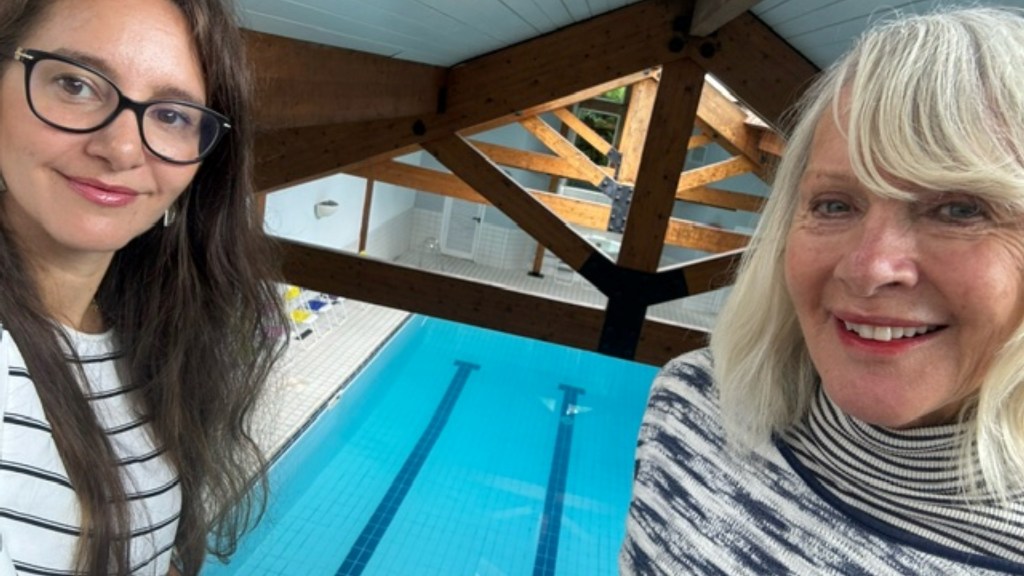Monetizing Your Property: Creative Ways to Generate Income
In 2020, Tony Waddington faced a dilemma when he bought a new Land Rover, only to find that it wouldn’t fit in his garage. Rather than relocating to accommodate his vehicle, he was determined not to let the garage space go unused.
A friend proposed the idea of renting out the garage in the desirable Notting Hill area of London. Fast forward four years, and Waddington has successfully earned nearly £10,000 by listing his garage on Stashbee, a booking platform, resulting in an average monthly income of £354 through six long-term rentals.
In the face of rising living costs, elevated mortgage rates, and soaring energy bills, Waddington, now 81, has tapped into the sharing economy. The trend of capitalizing on personal assets has gained traction thanks to platforms like eBay, Etsy, and Airbnb, which facilitate the renting or selling of various goods and services. Statista, a German data platform, predicts the global sharing economy will reach a valuation of $600 billion (£452 billion) by 2027, up from nearly $150 billion this year. This estimate accounts for revenue generated from asset-sharing platforms like Airbnb, JustPark, and opportunities for gig work through sites like Fiverr, Uber, and JustEat.

David Mantle, co-founder of Stashbee, stated, “Airbnb set the standard for the sharing economy, and our service mirrors that model.” Individuals interested in renting out their spaces can register on the platform, providing photographs and relevant details. Stashbee offers support services, contract templates, and identity verification for a 5% service fee.
With Stashbee’s minimum rental period of 30 days, Waddington’s most recent tenants have stored a Mini in his garage for over a year.
Waddington noted, “The process is quite seamless; aside from exchanging keys with new tenants, I hardly have to do anything.”
Other applications for garage rentals include Parklet, which takes a commission of 20% to 30% based on rental duration. Alternatively, local advertising could eliminate commission fees. JustPark, a site that allows users to rent out parking spaces, charges a mere 3% commission.
If you’re contemplating renting out storage space at your property, it’s essential to check with your insurance provider to ensure proper coverage and with your mortgage lender to confirm that you aren’t violating any loan terms. Many lenders are amenable to renting out some space, as long as it’s not the primary function of the home, but be aware of potential limits on rental days per year. It’s wise to acquire any stipulations in writing.
“Typically, the terms of your mortgage will specify the property is for residential use only. However, as long as the property remains appropriately insured, storing items generally shouldn’t pose issues. It’s best to contact your lender to clarify before proceeding,” advised David Hollingworth from London and Country Mortgages.
Rental Opportunities with Private Pools
Suzanne Celensu manages her family home in Yorkshire for her mother, Zoe Spink, who resides in France. The house, which features a large swimming pool, has been a family asset since 1983 and was previously rented out until it fell into disrepair.
Facing the prospect of costly pool repairs, Celensu, 39, realized the pool held significant sentimental value since it was built by her late father. After conversations with neighbors, she recognized that she could alleviate the maintenance costs by renting the pool.
“Many individuals desire access to a private swimming pool for various reasons, including personal comfort, religious practices, or disabilities. One of my clients prefers to swim with her daughter in private, away from larger crowds,” she explained.
Celensu joined Swimple in June, an app that connects swimmers with available pools. According to Nic Crum from Swimple, pool owners must adhere to stringent insurance and safety standards. The platform provides a range of resources for owners, including risk assessment templates and health and safety information.
Pool owners should familiarize themselves with local regulations and verify any necessary permissions with their local council. Celensu implements a disclaimer for pool users to minimize legal responsibility in case of accidents, as recommended by Swimple.
Thus far, interest has been strong, including a swimming school that rents the pool for ten hours each week. So far, she has earned approximately £300 monthly by charging £30 per hour. If fully booked, her potential earnings could reach up to £1,500 monthly.
Her expenses, including maintenance and public liability insurance, amount to about £420 monthly, but she appreciates the community benefits, stating, “Three families in my area now regularly use the pool. It’s fostering a local community. My approach ensures accessibility for a girl with disabilities and her mother by blocking reservations around their sessions. I feel fulfilled by assisting them.”

Transforming a Van into an Income Source
Valentine and Sophie Bryant embarked on converting a stylish camper van during lockdown, turning a sidelined business opportunity into a profitable venture. “My main business in signs and graphics was halted during COVID-19, which opened the door to this project,” stated Valentine, 67.
They purchased an old delivery van for £8,000, overhauled the interior, and created a luxurious holiday accommodation, complete with a super king-size bed, a hob, microwave, toilet, and a full-size shower, supplemented by a wood-burner and solar power.
Post-renovation, after successful testing trips, they decided to rent out their creation. They obtained self-drive hire insurance for £2,500 a year, covering any accidents for renters, and registered the van, named Splinter, with Quirky Campers, which takes a 21% commission on bookings.
Costs for the renovation approached £25,000, with annual maintenance at around £1,500. However, Valentine reported earnings exceeding £15,000 annually from the rental, noting that bookings vary from short three-day stays to longer rentals. Notably, one couple even rented it for their wedding trip to Gretna Green, followed by a scenic Scottish tour stretching 500 miles.
While some risk is associated with renting out vehicles, Valentine noted that insurance has helped manage minor damages and cleaning issues. “We’ve encountered a few guests who left the van dirty, leading to a £100 cleaning surcharge, but those situations are manageable under our policy,” he added.
Profiting from Parking Spaces

Patrick Dunne, living close to Selhurst Park, utilizes JustPark to rent out his driveway on match days, earning around £400 annually since 2010.
“I own one vehicle but have space for two, so this seemed like an excellent opportunity,” shared Dunne, 62, who works as an electrical compliance manager. Utilizing JustPark’s pricing engine allows him to adjust rates in line with demand, with prices in the area ranging from £6 to £35 for four-hour slots.
While it’s not a massive income stream due to available roadside parking, Dunne relishes providing a secure option for visitors. He recalls only a few negative experiences, primarily interactions with fans who have been to his home for matches.
There are other platforms like YourParkingSpace, which charges users booking the space, and Park on My Drive, which requires a £20 yearly listing fee, payable when securing the first renter.
“It’s vital to consult your insurance provider about additional property uses, as not all policies will cover such activities, viewing them as increased risk,” advised Pam Quinn from the British Insurance Brokers’ Association. “Certain insurers may not insure properties with additional uses but others might cover them but exclude related claims. If standard cover isn’t available, some brokers specialize in this area and platforms may offer protection, so understanding terms is crucial,” she noted.
Understanding Tax Implications
The trading allowance permits individuals to earn up to £1,000 per annum without incurring taxes, encompassing income from renting out spaces for parking or storage. Any income exceeding this threshold must be reported to HM Revenue & Customs via a self-assessment tax return.
“Clarity regarding whether your income is from property or trade is essential, as taxation differs, ” advised Leanne Gunns, an accountant from Norwich.
“Furthermore, joint ownership of property or assets means the income is also shared jointly. Hence, if one partner is a higher earner, they cannot report all income under the other partner’s details. Hosting platforms are responsible for reporting to HMRC, so accurate declarations are imperative.”




Post Comment